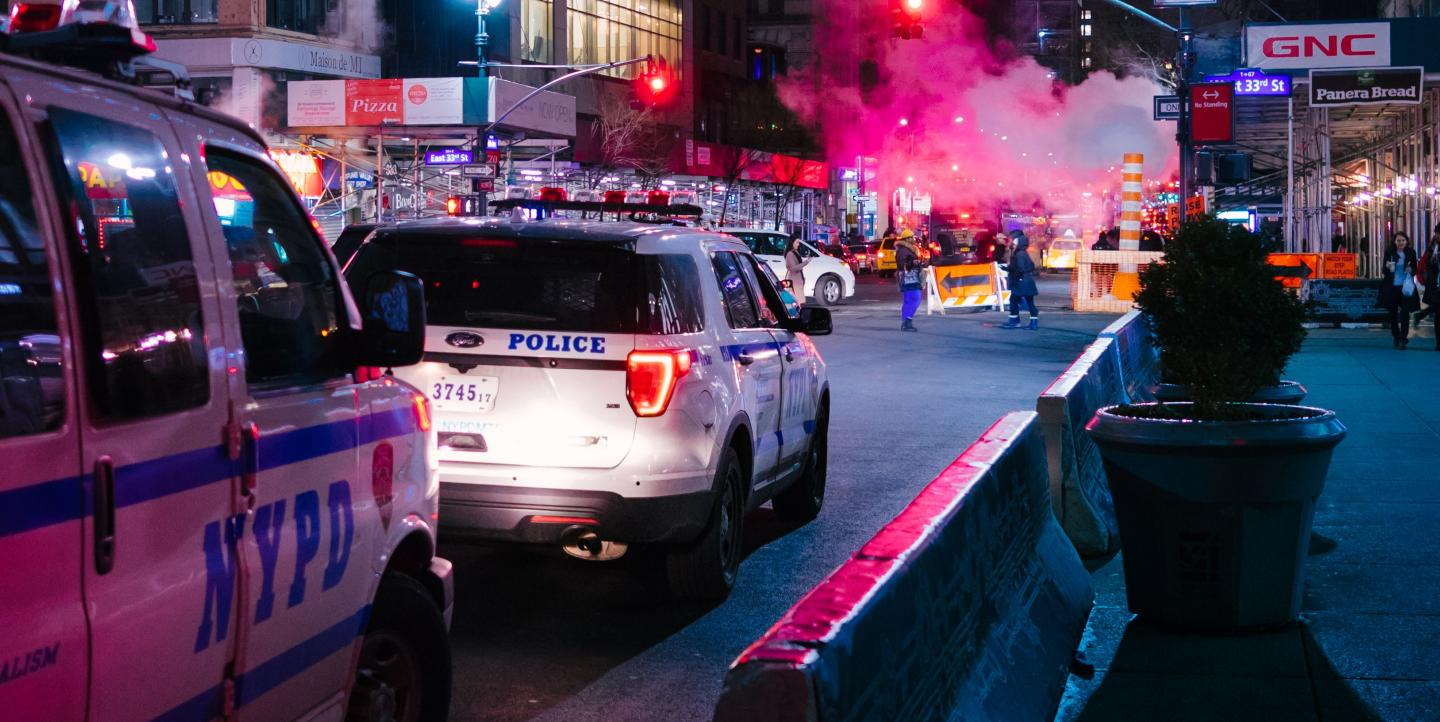In the wake of police killings of Breonna Taylor, George Floyd and others in the United States, journalists and newsrooms need to be more intentional about the terminology and language they use when reporting on the police and policing.
Part of journalistic responsibility is holding systems and those in power accountable, which also requires being critical of our own understanding of the words we use, and how it can affect public perceptions of our institutions. The terminology journalists use is connected to shaping the American public’s understanding of the police.
A lot of the terminology we use in reference to policing cannot be divorced from long-held, implicit racial biases. The language used by journalists is increasingly important considering how Black Americans are impacted disproportionately by police violence in the U.S.
“Journalists can inadvertently fall into protecting the system, because if you use the language the system gives you to describe it, we’re doing something wrong,” said Morgan Givens, audio storyteller and producer at National Public Radio and WAMU.
[Read more: Tips for reporting on anti-police violence protests in the U.S.]
For example, journalists and experts have criticized the phrase “officer involved shooting” for years, arguing that it is euphemistic jargon that downplays the role of police. The phrase itself dates back to the Los Angeles Police Department in the 1980’s. It was used by Lieutenant Charles Higbie, who ran the Officer Involved Shooting Unit, a unit that was known to obscure the truth surrounding police shootings.
The phrase is intentionally vague, and inspires more questions than answers. It lacks any degree of clarity on how the officer was involved, and allows for police institutions to detach themselves from the responsibility.
“The system is going to give language that prevents it from being held accountable,” said Givens. “It takes the onus off the person committing the action. It takes the onus off of the system that is engaging in this type of brutal behavior.”
Instead of co-opting phrases like “officer-involved shooting” in journalism, it would be more accurate to describe deaths caused by police as the “police killing of...” or “death caused by….”
Some Americans use colloquial phrases like “boys in blue” or “New York’s finest” (in reference to New York Police Department officers), which almost directly conjure images of virtue and justice. Although newsrooms shy away from these phrases, the more commonly accepted term “law enforcement” also demands interrogation, and may similarly grant privilege to the police.
“Using this language of ‘law enforcement’ only serves to perpetuate how people are supposed to understand the law as a sort of objective outside body, versus an institution that’s deeply embedded in our society,” said Dr. Jean Beaman, a professor of sociology at the University of California Santa Barbara who studies how marginalized individuals understand their positions in society based on race and other factors.
[Read more: Kenyan journalists learn from U.S. counterparts covering police brutality protests]
To understand the biases inherent in the term “law enforcement,” we need to unpack how seemingly race-neutral laws are applied, said Beaman. For example, police stops are more likely applied to Black Americans in traffic and on the street than white Americans.
The term “law enforcement” will also have different meanings for different people, said the University of Pennsylvania’s Dr. Abraham Aldama, as racial groups each view the institution of the police differently. A 2016 survey of American adults found that 35% of Black Americans and 75% of white Americans said the police in their community were doing a “good job” treating racial and ethnic groups equally.
In order to be more accurate, journalists and editors should be critical and reassess the use of the term “law enforcement” for its lack of neutrality and specificity, and because it can give deference to the actions of police in the minds of readers.
Going forward, Beaman says one of the first steps to improve language in newsrooms is to hire more racially and ethnically diverse voices in newsrooms and on editorial boards. That is the first of many steps to lead to more comprehensive views on how we report.
Givens says to move forward, it’s necessary to read more and question more, which requires constant work. He suggests four questions to ask each time you use a phrase to describe policing — or any other institution:
- Who taught you this?
- What does it serve them to teach me this?
- What does believing this uphold?
- What does this mean in an overall societal perspective?
Givens added: “Even as journalists, we are part of society, which means we’ve been raised in the same society. We’ve been taught the same things. So unlearning so we can report the truth is hard."
Zion Adissem is a freelance writer and journalist in Pittsburgh, PA. He’s produced podcasts and developed projects in local news and the nonprofit sector focused on culture and community.
Main image CC-licensed by Unsplash via Matteo Modica.

